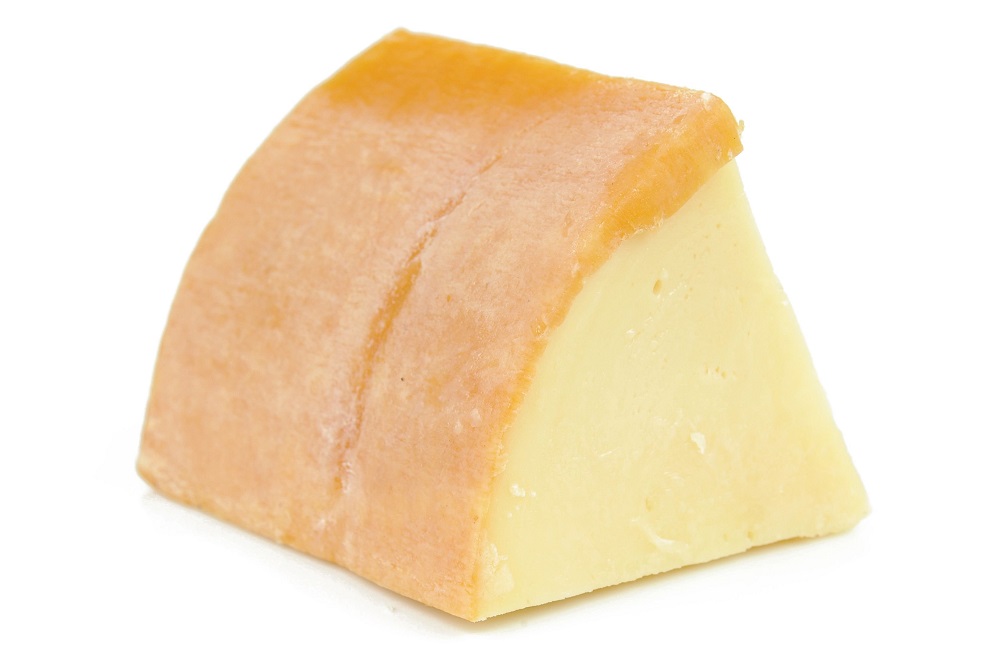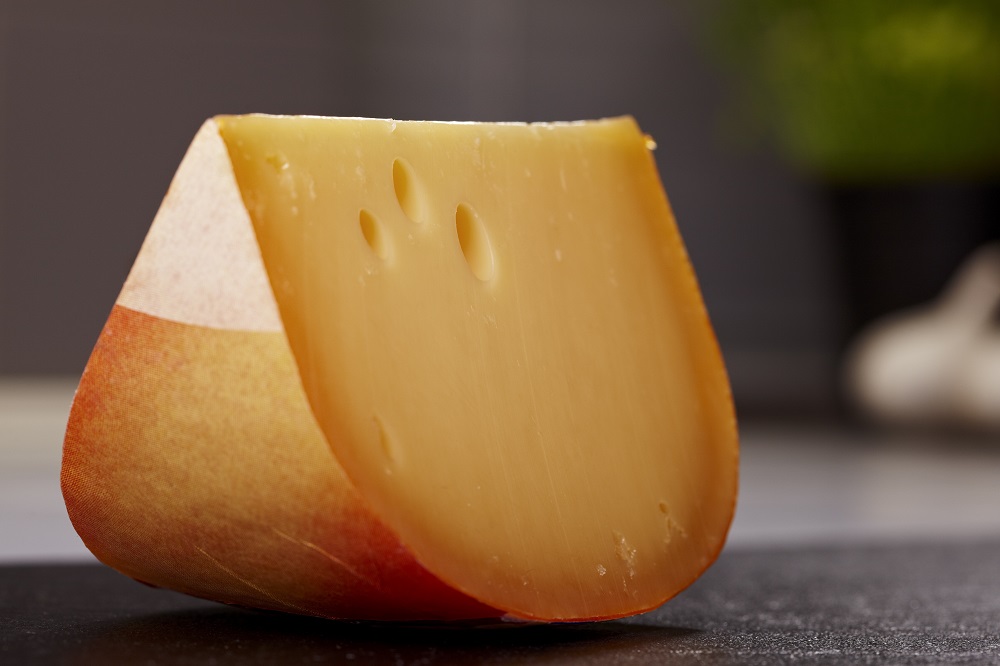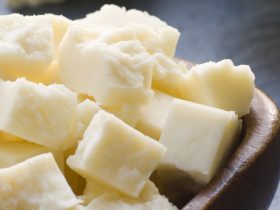A type of cheese produced from cows’ milk, provolone is best known for presenting a semi-hard texture despite its relatively short aging time as well as a distinctly varying test depending on its age, the location it was made as well as the particular curdling enzyme used during the provolone’s production.
Provolone is rather easy to substitute owing to the fact that it shares many properties with other types of cheese, some of which are not even derived from the same milk source as provolone itself. Thus, choosing to find a suitable substitute for provolone is less a matter of difficulty and more one of choice.
Due to the multitude of substitutes provolone may have, it is first best to determine the exact properties of provolone that the recipe calls for so as to best replicate that property. Things like the stretch-curd of provolone in sandwiches and pizza may be more important than its relative taste, for example, and as such substitutes must be selected for with this particular texture in mind.
What is Provolone?
Provolone is considered a stretched-curd semi-hard cheese wherein it is plasticized and undergoes certain mechanical kneading procedures during its creation process. This, in turn, creates a more stretchy and somewhat chewier texture, especially if consumed while it is still young and relatively new.

Originating from the northern areas of Italy, provolone comes in a variety of types and flavors that may present somewhat different shapes or flavors but generally share the same type of texture. Whether smoked, spiced or simply left plain, provolone is usually found to be semi-hard and produced from the milk of a cow, though it is not always subsequently pasteurized, depending on the production process of the cheese.
Why Should You Replace Provolone?
There are a multitude of reasons why a home cook or restaurant chef would choose to replace provolone, from reasons such as pre-existing health conditions of the individuals the meal is being cooked for, or a particular dislike of certain characteristics that are ordinarily pertaining to provolone cheese itself.
Other reasons why substituting provolone may be a wise decision is the presence of vegan or vegetarian dinner guests, a shortage in this particular type of cheese, or even simple individual preference.
Regardless of the exact reasoning behind the decision to substitute provolone for another food product, it is a good idea to pick a replacement that will mesh will with the particular texture and taste profile of the dish it is being incorporated into, as certain substitutes for provolone may not entirely work with the meal that is being served.
Textural Substitutes for Provolone
Perhaps one of the most striking characteristics of provolone cheese is its uniquely stretchy yet semi-hard texture, oftentimes making it an excellent topping on baked and otherwise cooked dishes that require a mild and creamy flavor.
Fortunately, a variety of other cheeses and cheese-like products exist that share this same characteristic, especially if incorporated into heated meals wherein the difference in taste is less noticeable.
Low-moisture Mozzarella Cheese
Among the most commonly found cheese in western markets alongside cheddar and parmesan, mozzarella acts as an excellent textural replacement for provolone in the correct instances. This is further compounded by the fact that mozzarella comes in a variety of forms and flavors, some of which can be nearly identical in appearance, taste and texture to provolone itself.
In terms of substitution, aged mozzarella with a distinctly low moisture level will best replicate the texture and taste of provolone, though afternotes of tartness may be present that are otherwise not noticeable in the flavor profile of provolone.
As such, it is best to use mozzarella as a textural replacement in dishes such as provoleta, pasta bakes, and pizza, wherein other spices and sauces may help mask this otherwise minor flavor difference between the two cheeses.
Fontina Cheese
Sharing the same birth place as provolone, fontina cheese is also a type of semi-hard to semi-soft cheese produced from the milk of cows. Generally aged for a highly variable length of time, fontina’s texture depends on the manufacturer and the sort of processes it undergoes during production.
However, in terms of provolone substitution, fontina cheese that has been aged for several months or until it has begun to take on a semi-hard and firm texture is best, as this point in the aging process is when it has reached the closest approximation to that of provolone cheese.
Flavor-wise, fontina is somewhat sharper and more intense than that of provolone, making it a poor substitute in recipes where the cheese is the main source of flavor, such as quesadillas or a sampler platter.
Flavor Substitutes for Provolone
Provolone, apart from having an excellent texture, also presents a uniquely mild yet sweet flavor that may present different notes and altered levels of sharpness depending on the particular rennet added to the cheese during its production.
Primarily, however, provolone most often provides a semi-sharp flavor with a creamy underbelly, with provolone piccante sharing more of the former than the latter, as opposed to provolone dolce, two of the main forms of provolone.
Gouda Cheese
Originating from the Netherlands, gouda cheese is known for having a hard to semi-hard texture in its unheated form, as well as a distinctly long aging time if not being produced specifically for the creation of a soft cheese.

Gouda cheese shares much of the same flavor notes as provolone with a somewhat stronger sweetness, especially in cases wherein the gouda has been aged for longer than twenty four months.
Thus, it is best to use relatively young gouda to replicate the taste of provolone, though it is likely that the relative texture of gouda will not replicate that of provolone, making it better suited for recipes where the flavor of provolone is the main characteristic that must be substituted instead of texture or stretchiness.
Monterey Jack Cheese
Originating from the United States, Monterey jack cheese and some of its subsequent variations make an excellent flavor replacement for provolone, as they both share the same buttery after-taste despite the relatively mild flavor profile possessed by both.
This is further compounded by certain processed versions of Monterey jack cheese wherein certain additives recreate some of the finer notes of taste found in provolone, such as its distinct sweetness and nearly unnoticeable tanginess.
Additionally, Monterey jack cheese is often found to be quite high in lipid compounds, making it quite similar to provolone in situations wherein it is exposed to heat, as they will both develop a stretchy and somewhat soft texture when incorporated into the dish.
Scamorza Cheese
While relatively uncommon outside of southern Italy, scamorza cheese is produced in a unique manner wherein the cheese is allowed to steep within its own protein compounds in order to increase its relative pH, creating a tangier flavor and more elastic texture.
Oftentimes compared to mozzarella, scamorza cheese is known for having a more intense flavor than the former, and as such may be overpowering in certain dishes when used as a flavor substitute for provolone.
However, in controlled volumes, scamorza may be incorporated into sauces, soups and dips in order to impart some of the main flavors normally found in provolone cheese, so long as it is evenly distributed and melted throughout the dish.
This is further facilitated due to scamorza’s extreme susceptibility to melting, making it an excellent candidate for this very purpose.
References
1. Manzo N, Santini A, Pizzolongo F, Aiello A, Marrazzo A, Meca G, Durazzo A, Lucarini M, Romano R. Influence of Ripening on Chemical Characteristics of a Traditional Italian Cheese: Provolone del Monaco. Sustainability. 2019; 11(9):2520. https://doi.org/10.3390/su11092520
2. Thorpe, Liz. The Book of Cheese: The Essential Guide to Discovering Cheeses You’ll Love. Flatiron Books, 2017





Hi, I'm Dom
Dom Eats was started to help other people fall in love with food. While cooking can feel intimidating, it doesn't have to be.